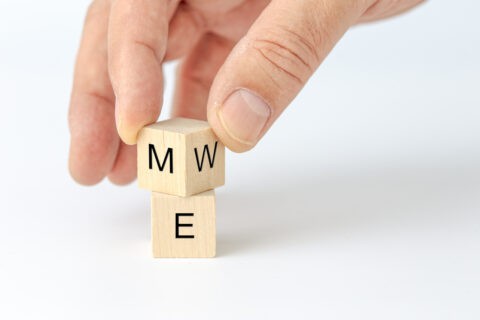
I received a mysterious voicemail from a pastor friend of mine. He lives in another city and we rarely hear from each other, so I was a little surprised when his message said he needed to talk to me about something and he didn’t want to do it over the phone, so he would be driving the two hours between his city and mine to meet face-to-face.
I immediately called him back, but despite my desire to know more details, he was unwilling to talk about it over the phone. We made an appointment to meet and I anxiously waited for the following Tuesday to arrive so I could learn the truth behind his cryptic behavior.
Tuesday rolled around and my friend showed up right on time. It was good to see him, but there was a tension he was wearing on his face instead of his usual laid-back smile. We exchanged some awkward pleasantries and then sat down in my office to talk. I asked him what was going on, and he took a deep breath followed by a long silence as he searched for the words.
What he said next took me completely by surprise. He gathered his composure and then spoke. I believe it was the first time he had ever said these words out loud and even as he said them, the reality of the situation seemed to shock him just as it was shocking to me. He said,
“My wife is a closet alcoholic. I believe she is also addicted to pain pills. It all started out innocently. She’d have a glass of wine or two at night to help her relax before going to bed. On some nights, she’d have a little bit more, but I never really kept track and never thought there was a real problem.
In the midst of her daily wine habit, she injured her back in a minor car accident and the doctor prescribed her some pain medication. She took what was prescribed, but then I soon noticed she was taking more than the prescribed dosage. She would run through her entire prescription in a week and then do whatever she could to get more pills to last her for the rest of the month.
She has managed to get through most days functioning at work and in the community, but some nights I’ll find her passed out in a closet. I don’t know how much she’s drinking or how many pills she’s taking, but I know it’s a serious problem. She’s been lying to me and to others. She’s always been the most trustworthy person I know, but I can’t trust anything she says anymore. She’s hiding things, and I’m terrified that I’m going to walk in and find her dead one day. I feel powerless.
I’m not sure when or how it all spiraled out of control. I feel so guilty for not taking more action sooner. She’s always been so strong and I just figured she would pull through this. I also wanted to protect her reputation at church and in the community and for her job, but now this is a full-blown crisis and I have no idea what to do next. I wanted to talk to you because you care about us and you care about marriages, but you’re also not in our community so this feels like a safe place to talk about it while still respecting her privacy. What should I do next?”
I sat and listened and prayed silently while my friend poured out his heart. It’s a story I hear often from strangers writing to me online, but it sounded completely different coming from my friend. “Addiction” wasn’t just a label I could put on nameless, faceless people anymore. It was hitting very close to home with people I love.
Substance abuse and addiction have touched nearly everyone. Most of us have had a loved one who has battled addiction, and some of us have battled it ourselves or had a spouse who has struggled. When addiction emerges in your marriage, it’s vital to take immediate action. I’m going to share some action steps for the spouse who is trying to get help for the addicted spouse. Like my pastor friend, if your spouse is caught in substance abuse and/or addiction, please take action.
Each situation is unique, but here are some action steps that are helpful in most circumstances when a spouse is battling substance abuse and/or addiction. In no particular order…
1. Talk to your spouse.
The first step in dealing with most marriage issues is communication. Talk about what’s going on. Tell your spouse their behavior is getting out of control and if they won’t get help on their own, out of love for them you’ll have to intervene and get others involved. Make a plan together and if they won’t listen or won’t stick to it, take further action to intervene.
2. Confide in some trusted friends.
My friend was wise to reach out to me. It was a burden no one should carry alone, and I’m so glad he reached out. If your spouse is caught up in addiction, reach out to some trusted friends and relatives. Don’t put it all over social media. Protect your spouse’s reputation, but even more important, protect your spouse by getting help. That help will require enlisting the help of others who love you and love your spouse.
3. Seek guidance from professionals with addiction expertise.
While the help of a few loved ones is important, you will also need medical and/or psychological help. My friend was able to get connected to an addiction support group through our church and also a rehabilitation program where his wife was able to get clean and sober over a period of six weeks. It required the intervention of some trusted loved ones to help her see the crisis of her situation for her to finally admit she was powerless to overcome it alone and to get into a program to get the help she needed.
4. Stay connected in a community.
Addiction is a monster that can’t be battled alone. There’s strength in a community through groups like AA, family support and church groups such as Celebrate Recovery. For both spouses, these groups along with the love of friends and family can make all the difference.
5. Remember there’s a power greater than yourself.
Nearly all addiction recovery programs point people to a higher power. In case you haven’t met him, the higher power’s name is Jesus and He is with you in this storm. Pray, read God’s word and trust that the Lord will carry you and your spouse through this storm. Keep following these steps and doing all you can do, but then trust God will carry you and your spouse through it.












